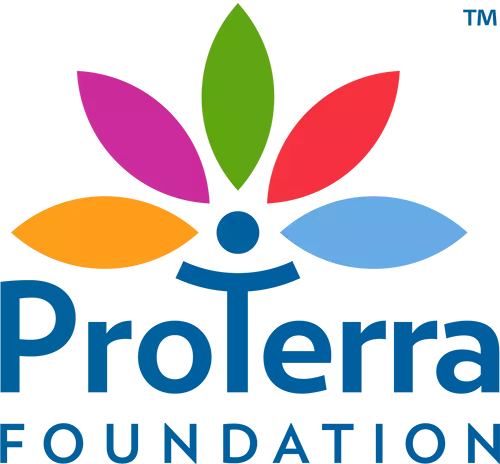Full traceability
Denofa imports 450,000 tons of soybeans each year to Fredrikstad. The main supplier is the parent company AMAGGI from Brazil, but we also purchase soybeans from the USA and Canada. Denofa requires full traceability and comprehensive documentation from all suppliers. AMAGGI is a member of the “Soy Moratorium,” an industry collaboration in Brazil aimed at stopping deforestation of the rainforest.
Sustainable soy production – in Brazil
Increased production of plant protein is said to be a prerequisite for sustainable food production globally.
Sustainable agriculture, however, requires us to balance the need for food with consideration for both people and the environment. The Brazilian soy industry is often associated with deforestation of the Amazon rainforest and the Cerrado savanna. How can it be that the soybeans Denofa imports from the same country are produced sustainably?
The Norwegian requirement for GMO-free raw materials, which came in 1996, meant that Denofa had to establish a very precise tracking system that could document that the soybeans were cultivated naturally. As new demands arose, such as deforestation, indigenous rights, and climate footprint, we were able to incorporate additional measurement points. This means that Denofa has an exceptionally comprehensive traceability system today, and is in a position to demand a certain level of quality, environmental, and ethical standards.
Sticking to strict requirements
Denofa pays a premium to Brazilian farmers who meet our high standards for production, but in return, we receive high-quality and guaranteed deforestation-free and sustainably certified soybeans.
The state of Mato Grosso in Brazil, where our beans are cultivated, borders vulnerable areas of tropical rainforest and savanna. Even though we can document full traceability and sustainable production for our own deliveries, we are also actively involved in efforts to halt deforestation altogether. Our main contribution is to adhere firmly to the stringent requirements for soybean production. In addition, AMAGGI uses Denofa to demonstrate that there is a willingness to pay in Europe for soybeans that meet these sustainability criteria. Now we see that more are following suit, and the Netherlands became the next country after Norway to achieve 100% deforestation-free soy import.
Ensures sustainable development
An important milestone was when Denofa and the Norwegian agriculture sector committed to ensuring that all soy purchases would be sustainable and deforestation-free. “The Norwegian Commitments on Sustainable Soy and Forests” from 2015 is a binding declaration aimed at ensuring sustainable development in rainforest regions.
The declaration is signed by Felleskjøpet Agri, Felleskjøpet Rogaland Agder, Norgesfôr, Fiskå Mølle and Denofa.
We also work actively towards ensuring that other European countries set equally stringent requirements. The European collaboration primarily takes place under the Amsterdam Declaration, which includes Norway, Sweden, Denmark, Germany, the Netherlands, France, and the United Kingdom. Norwegian climate authorities through NICFI also participate in this work. In 2019, 26 voluntary organizations, including the Rainforest Foundation, Greenpeace, and Friends of the Earth Europe, urged the EU and the countries in the Amsterdam Declaration to set the same stringent requirements as Denofa does.
The Accountability Framework Initiative (AFi), as well as the New York Declaration, are other important tools to ensure sustainability throughout the value chain. Denofa also has its own policy and Code of Conduct that include certain principles for a sustainable business practice.
Sustainability certification
ProTerra and RTRS (Round Table on Responsible Soy) are two internationally recognized standards for the certification of sustainable soy production. They set forth a range of specific requirements to define soy production as sustainable. The ProTerra and RTRS certifications are supported by WWF and several other environmental organizations.
The total production of soybeans globally is close to 450 million tons of soy. However, only a fraction of this is fully sustainably certified. Denofa’s imports account for 17% of the sustainably certified volume from Brazil, but only 0,2% of the total volume of soy produced in the world.

Pro Terra
The ProTerra standard was established as early as 2005 and is based on the Basel Criteria (developed by WWF and Coop in Switzerland), the SA 8000 standard, the Universal Declaration of Human Rights, the Convention on the Rights of the Child, ILO conventions and recommendations, UN standards related to human rights, as well as EurepGAP and Global GAP standards.
RTRS (Round Table Responsible Soy)
The RTRS standard was finally established in 2010, with a range of requirements including:
- Legal Compliance and Good Business Practice
- Responsible Labor Conditions
- Responsible Community Relations
- Environmental Responsibility
- Good Agricultural Practice
Denofa is a member of RTRS and uses their certificates in our documentation. Additionally, all purchase and sale contracts from Denofa adhere to the declaration«The Norwegian commitments on sustainable soy and forests»
Eco-friendly transportation
Transportation is crucial in the big picture when it comes to climate footprint. The soybeans produced by AMAGGI in Mato Grosso are transported by trucks from the farms to Porto Velho, where they are loaded onto barges.

Our provider of bulk transportation trucking services is certified according to ISO 14001:2004.
Denofa’s IP program for delivery of non-GMO soybeans includes the use of barges on rivers to the Amazon, as well as modern ocean transport from ports in Brazil and Canada to our factory in Fredrikstad.
To meet both local and global environmental requirements, as well as optimize logistic solutions, all raw soybean oil is exported using modern oil tankers to European ports.
Denofa contributes to preserving the environment, reducing traffic and pollution, and simplifying logistics by shifting the transport of soy meal from road to sea, mainly to domestic ports in Sweden and Finland.
Quality & Environment certificates
Denofa has the following certificates:

ISO 14001
Scope: «Production of non-GMO soy products for food, feed, and technical applications», certified by Intertek.

FSSC 22000
Scope: «Production of soy lecithin and crude soybean oil from non-GMO soybeans», certified by Intertek.

GMP+ B2(2010)
Scope: «Production of feed ingredients», certified by Intertek.

Halal
Scope: «Non-GMO Denothin 62 (soya lecithin), Non-GMO SoyPass, Non-GMO Soybean Oil», certified by Halal Correct.

Kosher
Scope: «Non-GMO Crude Soybean Oil, Non-GMO Denothin 62, Non-GMO Soybean Meal and Non-GMO SoyPass», certified by Orthodox Union (OU)
In addition to the certifications mentioned above, ProTerra and FoodchainID Non-GMO and/or RTRS (Round Table on Responsible Soy) are used for certifying the sustainability of soybean deliveries.
Ethics & transparency
At Denofa, we believe that transparency builds trust – and that trust fosters an environment for change and closer collaboration.
We aim to be accommodating and respond to the best of our ability to all inquiries related to our business, even if they concern any negative aspects.
The provisions of the Transparency Act stipulate that all Norwegian companies should, in principle, respond to such inquiries within 3 weeks. However, the inquiry may be declined if it is deemed unclear, unreasonable, or concerns personal matters or trade secrets.
In addition to annual reporting and various audits, we organize field trips to Brazil for producers, stakeholders in the grocery industry, interest groups, NGOs, and others who want to learn more about how the deforestation-free, sustainably certified soybeans that come to Fredrikstad for processing are cultivated and harvested.
Reports:
- The Transparency Act disclosure_2022_denofa-as-1503
- Denofa as_Ethical trade report 2020
- AMAGGI Reports and Accountability